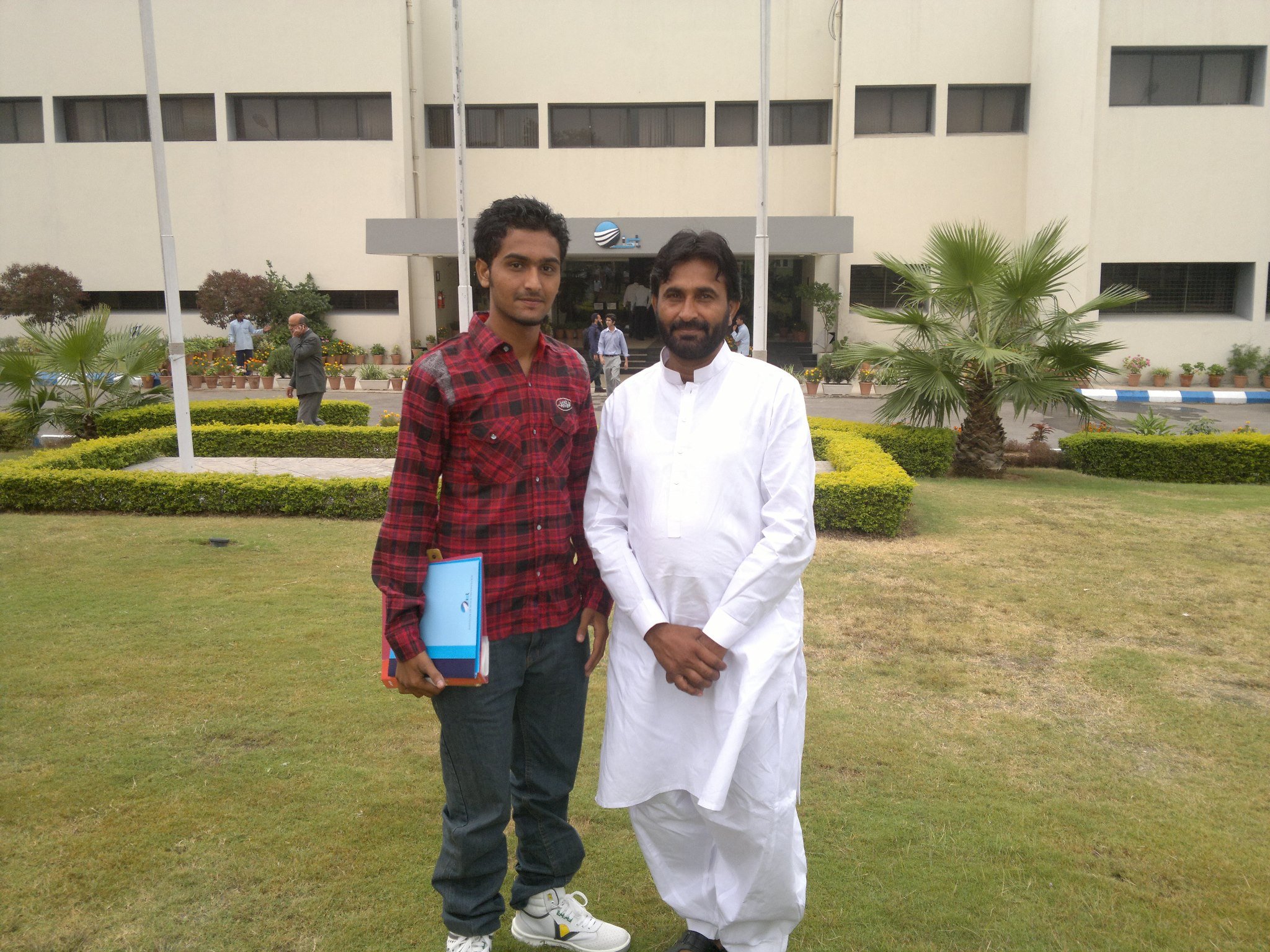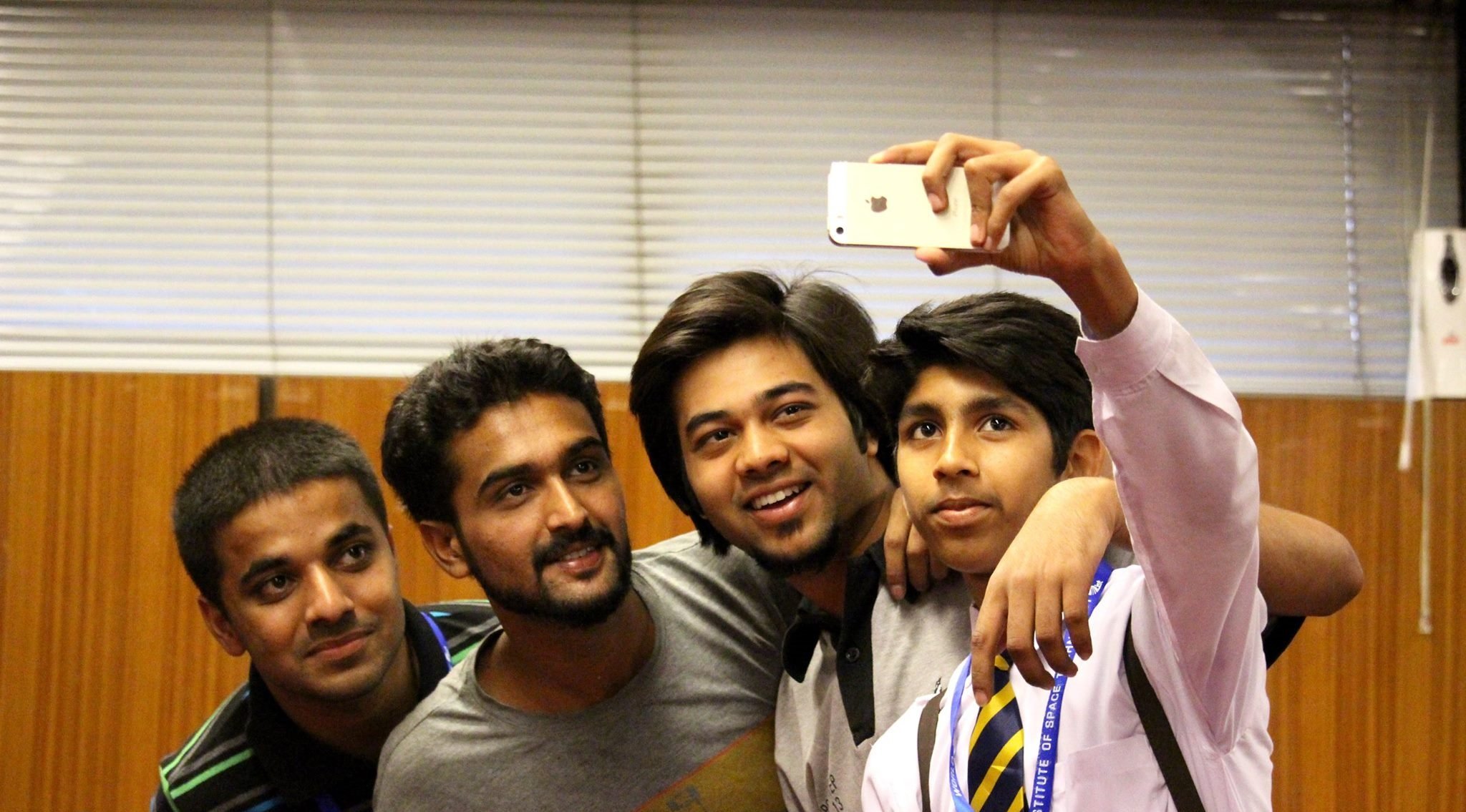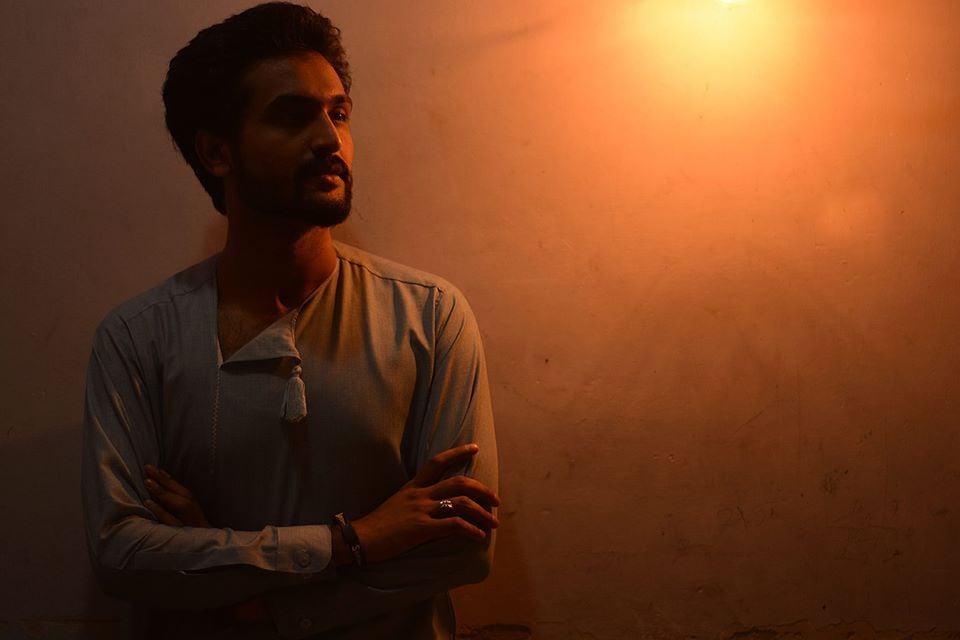The man with an itch

LAHORE: When Raza Samo was still a baby, chaos reigned at the Samo household. Before he even learned how to walk, he had developed the delightfully annoying habit of doing the exact opposite of what he was being told. It was a sign of things to come, his father would later say.
When Samo enrolled at school, the tempest followed him there. While his fellow students would be crying for their mothers, Samo would be yanking the ponytails of little girls to get attention. He would also pick fights. Samo was not easy to tutor, his teachers later said.
In college, though, that chaos started to eat away at his insides. Samo would be repeatedly reprimanded for not concentrating in class, and was often caught rubbing his eyes with a bored look on his face during lectures. Like most young men, he only bothered about dreams of quick adulthood. He had a permanent itch in his brain, a friend later described.
Samo belonged to District Larkana in Sindh. To the surprise of everyone not from the province, he graduated college with top honours, and was admitted to an institute in Islamabad. As the reality of this new academic challenge dawned, however, the chaos finally caught up to him. The artist Samo was born out of academic failures at the university, he later confessed.

Humble beginnings
The Samo family was not particularly wealthy, but they managed, all things considered. Samo's father was a motorcycle mechanic, he barely earned enough to keep food on the table, but still somehow managed to put little Samo through school and college without asking anyone for help.
Throughout school and college, Samo never exhibited much interest in mathematics, science, or sporting activities. Despite desperate appeals from his parents that he needed to take formal education seriously, Samo never really understood what all the fuss was about. He was more interested in drawing, dancing, singing and comedy.
When he got admission into the university in Islamabad, it was a dream come true for his parents. This is where Samo would turn the corner, they hoped. Samo, however, had other plans. He was excited by the prospect of living away from his parents' watchful eye, but equally aware of the fact that the freedom would come at a personal cost.
A couple of months in, as freshmen around him asked seniors about the intellectual leanings of irate professors, Samo was heard asking for clarity on whether he would be kicked out of the university if he flunked three subjects in the first semester. His queries were greeted either by laughter or baffled stares — a lot of people thought he was joking.
Also read: Meet the aspiring science journalists battling coronavirus misinformation in Pakistan

The beatboxer
But Samo was not joking. On the first day of his arrival in Islamabad, as he was setting up his bed in a small, two-bed hostel room, Samo and his roommate had been been summoned for 'ragging' by some older boys. Forced to entertain more than fifty people, Samo and his roommate collaborated. Samo sang, his roommate provided the music.
Thus began a friendship that would change Samo forever. He learned 'beatboxing', the art of making music without instruments, from his new friend, and the friend learned acting and dancing from Samo. During the first semester exams, while Samo's batchmates consumed their textbooks whole, the beatboxer and his pal lounged around discussing classic Bollywood films.
Suffice it to say that Samo was a misfit at university. However, he managed to gather a trope of like-minded individuals around him. The beatboxer was soon joined by a dropout cadet with a passion for writing. A girl with a penchant for drama and flair came too, and so did a scarf-clad aspiring stand-up comedian fed up with societal norms.
The gathering of misfits provided the university's students many memorable nights, both at the university and at the hostel. The annual art festival at the institute underwent a revival, the parties got crazier, the idle evenings in hostel rooms turned into hours-long jamming sessions. Samo was the glue holding this little sanctuary together. He even started a YouTube channel.
Also read: The curious case of space rocks smuggled out of Zhob, Balochistan to Arizona, USA
'You will always be a failure'
Things went south soon. After scraping through a couple of semesters, Samo eventually did manage to flunk enough subjects to be kicked out of the institute. Afraid of telling his parents he had failed them, he re-applied and came back. A couple of semesters into his comeback, he was once again expelled for poor academic performance.
"I found out that people who wanted to hang out with me when I had been happy and carefree no longer gave me the time of the day. When things around me started crumbling, I got a little more serious, got a little more perspective on life. My friends deserted me and my parents were disappointed in me," he said, describing the period.
"It was also during this time of crisis that I found out that my parents had spent their entire life savings on paying for my higher education. My mother even sold her jewelry to put me through university — the same one I was kicked out of twice.
"The professor I went to at the university to plead for a third chance told me I would always be a failure," he added.
"I realized I could not go back to Larkana. I had experienced a life of moderate fame at the university, and knew I would not be able to scratch off that itch for the rest of my life," Samo said.
He rented a small room at a private hostel in Lahore and applied to the National College of Arts, but was rejected. So he got enrolled in a small Lahore university.
Also read: Pakistan 11th largest arms importer in the world, claims research institute
Descent into drugs
At the university in Lahore, he fell into bad company. Although he was still putting up stuff on his YouTube channel, his heart was not in it. He had started doing drugs, and lots of them. Hash, crystal meth, and alcohol became staples. Very soon, he would have reached a point of no return, if not for a sudden death.
A friend who supplied him drugs, 'the coolest man in the neighborhood', died from a heart attack in front of his eyes. A few days prior to the death, Samo had been told the friend had been warned by a doctor not to indulge his destructive habits as his heart would not be able to take it. But the friend did not pay heed to the warning, and now he was dead.
The episode forced Samo to reckon with himself. He would never touch drugs again. "In the midst of this moment of pain, my family called to tell me that they had gotten into a fight with the local landlord, and were moving to Lahore to get away from his threats. But who would pay for rent? My world was about to crash," reflected Samo.
While the family packed their things and Samo looked for the cheapest available apartment, often going hungry for two days at a stretch to save money, he caught a little break. One of his YouTube videos took off, ballooning his subscriber count overnight. News channels, lifestyle reporters, old friends, and even distant cousins started calling him.
Also read: The purist transforming the art of documentary film-making
Satisfying the itch
The moment of glory Samo had been waiting for his whole life had arrived. He started making good money off the sponsorship deals he got from his internet content. He was invited to talk on local television channels as an influencer. He could afford to get better equipment to make videos, and even hire help to edit them.
Exactly one year from the breakdown, he bought his parents a house and a car. He made a video about it too. The subscriber count continued to increase, as did his earnings. Samo transitioned from being a drifting entertainer to a household comedian. Although many had misgivings about the edgy content he created, he never gave it too much thought.
"Never give up, because if you are willing to work hard, you definitely get your due. Always chase the dreams you have, and do what you like. There is too much pressure on students out there to be what the world expects them to be. I think it is dangerous. Students should be free to make choices, both personal and professional," Samo said.
"People stop me in the streets now, and recognise me, telling me they want to take selfies or shake my hand. My father has come around to the idea of his son being a celebrity. In fact, I think he is proud of me. I have heard him telling his friends that my son puts up videos on YouTube. He no longer tells me I have an itch, it is art now," Samo joked.
Also read: Pakistan has second-most polluted air in the world based on population density in cities

'I want to give back'
Even though he has now been living in Punjab for the best part of a decade, Samo still fondly remembers his hometown of Larkana. "Yes, Larkana is the city where all the Bhuttos are buried. But to me, it is more than just that. I grew up there, I have childhood friends there. I want to give back to the city of my birth," he said.
The district of Larkana has seen a lot of development in the last few years. Roads and bridges have been built, a highway linking the city to the rest of the province constructed, new hospitals are being inaugurated. The administration of the area has also recently opened up to the idea of constructing parks for the entertainment of families.
"I help out my family back home in Larkana as much as I can. Even though my parents left the city in terrible circumstances, the connection we all have to that place is hard to shake off. I want to one day open up an art school in Larkana, for boys just like me. There is so much talent in Pakistan, it just needs a platform," he remarked.
"I am also regularly contributing to the education of an under-privileged child here in Lahore. It is important we all play our part, especially those of us who have the resources to do so. I know what poverty is like, and I can see what the future for under-privileged children on the streets of Lahore will be if they are left to themselves," Samo explained.
Also read: Pakistan slips three spots on Corruption Perceptions Index

'To all the misfits out there, your day will come'
According to Samo, success is only found in pursuing the work that one loves the most. It is also a lesson for parents who want to impose life choices on their children. "For me, if I had listened to my parents, I would have become an engineer. But the thrill and confidence I got when I went up on stage at the university convinced me that my happiness lay elsewhere."
Samo has started to dabble in the film industry. He is collaborating with a couple of friends on a new movie project, and has started to branch off into new revenue streams on the internet, expanding his reach on Twitter and Instagram after conquering YouTube. "The internet is wild. There are always new places to explore," he said.
In Pakistan, the competition for comedy is tough. There are many bloggers and comedians with good reach, but originality in content is lacking. In the early days, the content Samo put up was regularly plagiarised. However, since he has become a famous, it is happening less often.
Even though Samo has come a long way from Larkana, the 'itch' that has accompanied him throughout his life, sometimes guiding, sometimes betraying him, still persists. "But I have learned to handle it better," he joked.
Raza Samo's rags to riches story is not just a fancy tale to share with friends over a dinner conversation. It goes deeper than that. For Samo, his story is of a young man finding purpose in life. Samo always wanted to make people laugh, and that is what he is doing. "To all the misfits, I want to say: 'your day will come'," he said.




